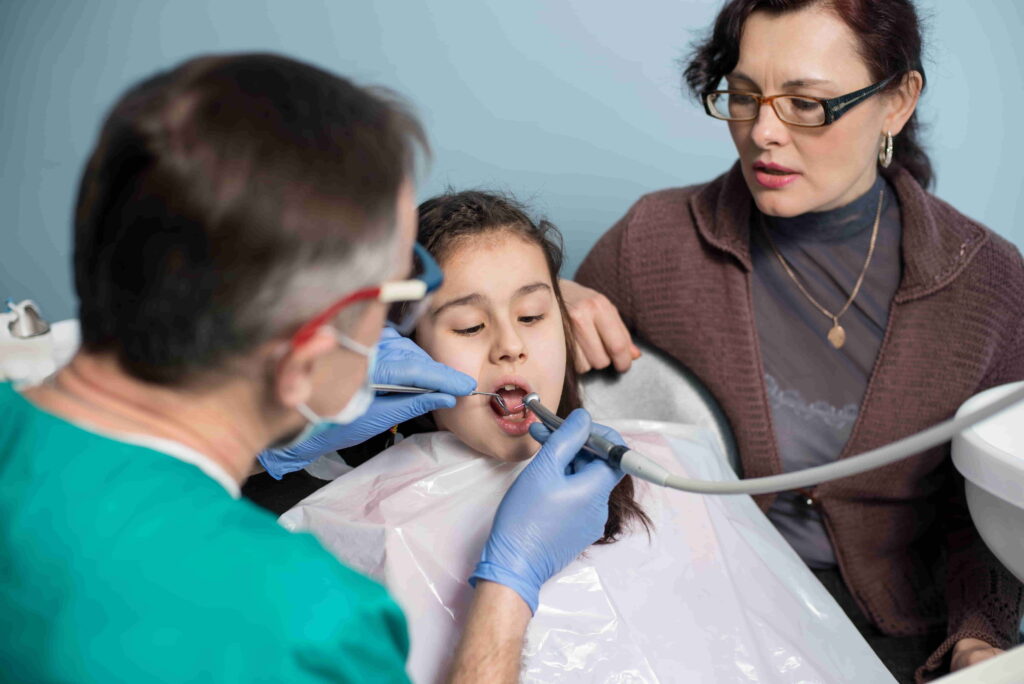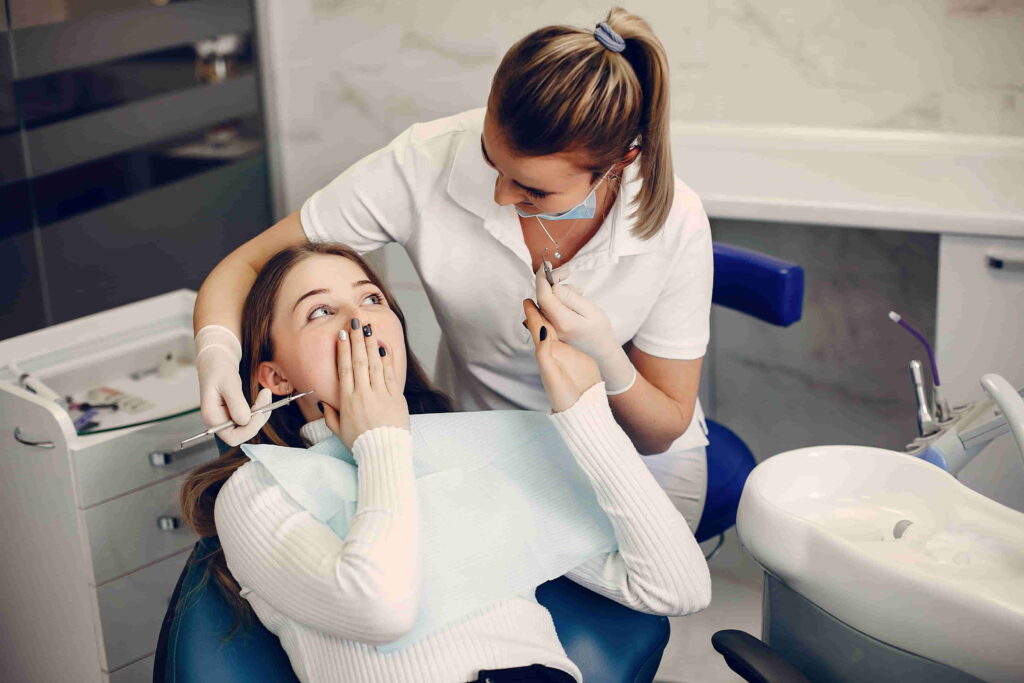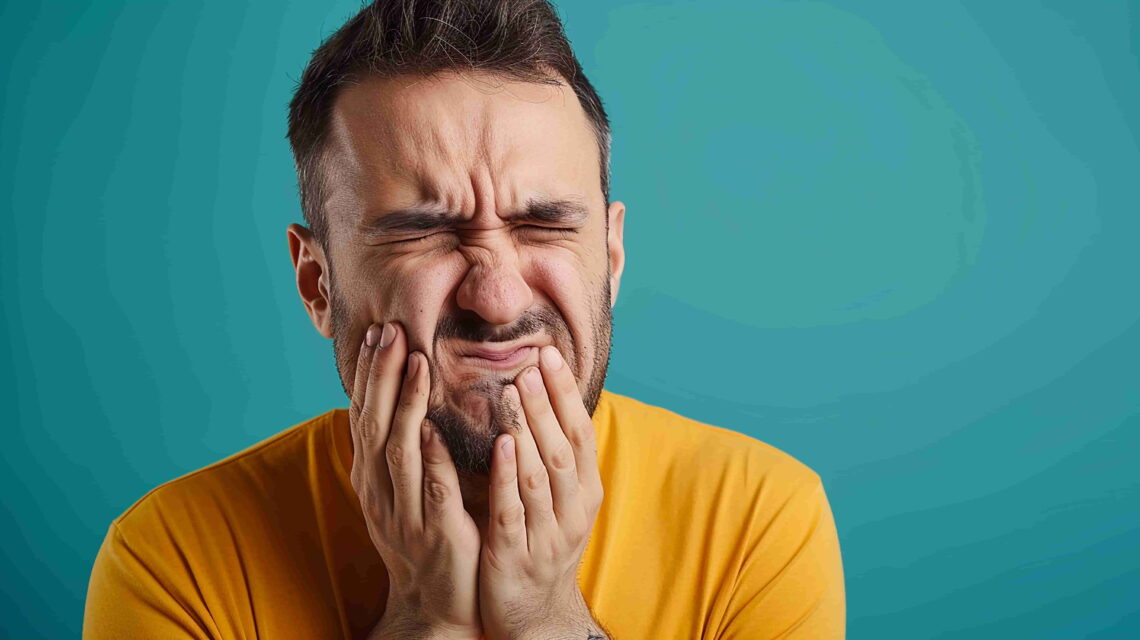Dental emergencies can happen unexpectedly, leading to significant discomfort and anxiety. Knowing how to handle these situations until you can see an emergency dentist in officer is essential for minimising pain and preventing further complications. This guide offers crucial information on common dental emergencies and practical steps you can take to manage them effectively. Being prepared can make all the difference, whether it’s a severe toothache, a knocked-out tooth, or unexpected swelling. Understanding these emergency measures will help you stay calm and take appropriate action until you receive professional dental care.
What to Do in a Dental Emergency?
Dental emergencies require prompt attention to prevent further complications. If you’re experiencing a severe dental issue, contact your dentist or seek immediate emergency dental care.
Here’s a general approach to follow:
Stay Calm: Panic can exacerbate the situation. Take a deep breath and focus on addressing the issue.
Assess the Situation: Determine the severity of the problem. Is it a broken tooth, severe pain, or bleeding? Understanding the situation helps in taking appropriate action.
Take Immediate Action: Follow specific guidelines depending on the type of dental emergency. For example, if a tooth is knocked out, gently rinse it and try to place it back in the socket. For severe pain, apply a cold compress to reduce swelling.
Contact Your Dentist: Schedule an appointment with your dentist as soon as possible. If the issue is severe, seek immediate dental care to prevent further complications.
Common Dental Emergencies
1. Toothache:
Symptoms: Sharp, throbbing pain in a tooth.
Causes: Tooth decay, infection, or nerve damage.
Temporary relief: Rinse your mouth with warm saltwater, use over-the-counter pain relievers, and apply a cold compress to the affected area. Avoid chewing on the affected side.
2. Knocked-Out Tooth:
Handle with care: Gently rinse the tooth in clean water (not with soap) if possible. Avoid touching the root.
Preserve the tooth: Store the tooth in a container filled with milk, saliva, or a special tooth-saving solution.
See a dentist immediately: Time is crucial for saving the tooth.
3. Chipped or Broken Tooth:
Clean the area: Rinse your mouth with warm water.
Control bleeding: Apply gentle pressure with a clean cloth.
Save the broken piece: Store it in a clean container for potential restoration.
Seek dental care: Schedule an appointment to repair the tooth.
4. Lost Filling or Crown:
Temporary relief: If the tooth is sensitive, cover the exposed area with dental wax or a small piece of sugarless gum.
Schedule an appointment: Contact your dentist to replace the filling or crown.
5. Object Stuck Between Teeth:
Use dental floss: Gently attempt to remove the object. Avoid using sharp objects.
Avoid excessive force: If unsuccessful, contact your dentist.

Emergency Dentist Near Me: Station Street Dental
If you’re experiencing a dental emergency in Officer, look no further than Station Street Dental. Our experienced team is dedicated to providing prompt and effective emergency dental care. We understand the urgency of dental emergencies and offer flexible appointment options to accommodate your needs.
Our emergency dental services include:
- Toothaches
- Knocked-out teeth
- Chipped or broken teeth
- Lost fillings or crowns
- Oral injuries
Don’t let a dental emergency disrupt your life. Contact Station Street Dental immediately for expert care.
Oral Injuries: When to Seek Immediate Medical Attention
While many dental emergencies can be managed with temporary home care until you can see a dentist, some situations require immediate medical attention.
Signs You Need to See a Doctor
Certain symptoms should never be ignored, as they can indicate serious medical conditions that require immediate attention:
Severe Facial Swelling: Significant facial swelling may suggest a serious infection, such as an abscess, which can spread rapidly and become life-threatening. This requires prompt medical evaluation.
Uncontrollable Bleeding: If you experience bleeding that doesn’t stop with direct pressure, you must seek medical assistance immediately. Uncontrolled bleeding can be a sign of a more severe underlying issue.
Signs of Infection: Symptoms like high fever, chills, or pus around the affected area can indicate a severe infection. These signs should not be overlooked, as infections can spread quickly and cause further complications if left untreated.
Difficulty Breathing or Swallowing: If you have trouble breathing or swallowing, these could be signs of a more serious condition, such as an obstructed airway or an advanced infection. Immediate medical attention is necessary to address these symptoms.
If you experience any of these symptoms, do not hesitate to contact emergency services or go to the nearest hospital. Quick action can prevent the situation from worsening and safeguard your health.
Preventing Dental Emergencies
While some dental emergencies are unavoidable, there are steps you can take to minimise the risk:
Wear a Mouthguard: If you participate in sports or activities that pose a risk of injury to your mouth, wearing a mouthguard can significantly reduce the chance of dental trauma, such as broken or knocked-out teeth.
Regular Dental Check-ups: Scheduling routine dental examinations and cleanings is crucial for identifying potential issues before they become serious problems. If left untreated, your dentist can detect early signs of decay, gum disease, or other conditions that could lead to emergencies.
Proper Oral Hygiene: Proper oral hygiene, such as brushing and flossing regularly, is essential for preventing cavities, gum disease, and other oral health issues that could lead to emergencies.
Avoid Biting Hard Objects: Biting down on hard objects, such as ice or hard candies, can cause tooth fractures or chips. Being mindful of what you eat and avoiding these habits can help protect your teeth from damage.

The Importance of Regular Dental Check-ups
Regular dental check-ups are key to maintaining good oral health and preventing dental emergencies. During these visits, your dentist can identify and address potential issues before they become serious, reducing the likelihood of unexpected dental problems.
Station Street Dental offers comprehensive dental care, including regular check-ups, cleanings, and emergency dental services. Our team is dedicated to providing the highest quality care and helping you maintain a healthy, beautiful smile. Your oral health is our priority, and we’re here to support you in preventing dental emergencies and ensuring your smile stays bright.
Conclusion
Dental emergencies can be stressful, but knowing how to handle common dental problems and when to seek professional help can minimise discomfort and prevent further complications. Remember, it’s always better to be safe than sorry. If you experience a severe dental emergency, don’t hesitate to contact your dentist or seek immediate medical attention.
Station Street Dental is here to help. Contact us today to schedule an appointment or learn more about our emergency dental services.


